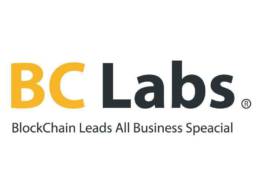Seoul Fintech Lab hosts “Investor’s Day’ every year in partnership with Plug and Play. The Silicon Valley-based accelerator launched its Korean office in 2020. Since then, Seoul Fintech Lab, Korea’s first fintech accelerator, and Plug and Play co-host a 6-week accelerator program for Seoul Fintec Lab’s residents. The co-hosted program provides mentorship to startups looking to expand their businesses to the US and SEA. At Investor’s Day, the highlight of this program, participating startups get the opportunity to showcase their businesses in front of notable investors from White Star Capital, Asia Pay, Sun SEA Capital, and others.
Plug and Play in Korea

Plug and Play is headquartered in Silicon Valley, the innovation platform has built accelerator programs, corporate innovation services, and an in-house VC to make technological advancement progress faster. Plug and Play is active globally in more than 30 locations, including U.S., China, France, Germany, The Netherlands, Singapore, Indonesia, and Mexico.
About Plug and Play:
50+
Accelerator Programs in over 35 locations.
500+
Industry-leading corporations collaborated with.
200+
Startups invested in annually.
Plug and Play Asia Pacific focuses primarily on the rapidly growing Southeast Asia region. The focus industries for this area include IoT, Mobility, Fintech & Insurtech, Health, Smart Cities, and Sustainability. With its new office in Korea, Plug and play aim to help Korean startups go overseas by leveraging the platform’s global network.
Seoul Fintech Lab
Seoul Fintech Lab is an accelerator funded by the Seoul Metropolitan Government. In 2018, Seoul Fintech Lab started with only 27 tenants. Now, it has become Korea’s biggest fintech accelerator, with nearly 150 companies from various finance-related fields. The accelerator also hosts fintech startups fostered by Hana Bank and KB Financial Group. Check out our full article here to learn more about Seoul Fintech Lab.
The 6 Korean Fintech Startups to Know
Below are six fintech startups that participated in Investor’s Day in the past.

VOLTA
To individual investors, direct investments require less time and effort than indirect investments through trading experts. Therefore, most retail investors prefer to invest by themselves. Volta is an open market platform for investors to invest more efficiently.
In addition, the platform connects those seeking investment opportunities to experts who want to commercialize their investment capabilities. Through this platform, VOLTA wants to give universal access to digital asset management and allow investors to purchase trading strategies from trading experts directly.
What differentiates VOLTA from other platforms?
“It is a very time-consuming process for experts to sell their trading strategies. With VOLTA this process can be decreased immensely. While there are similar platforms, most focus on the traditional trading market (stocks and bonds). VOLTA on the other hand is one of the few that offers crypto trading with experts. “

AIZEN
AIZEN is the creator of CreditConnect, an AI lending platform. The startup wants to bridge the gap between banks and data economy platforms. By closing this gap, AIZEN’s goal is to launch banking services faster, boost customer retention, and diversify revenue streams.
Furthermore, the company’s mission is to leverage AI to offer more affordable and accessible banking services, and most importantly, facilitate more credit in Southeast Asia. They are also leading the digital transformation in the financial services industry using proprietary AutoML platform ABACUS, with successful use cases in underwriting, fraud detection, product development, claim analysis, and more.
What are AIZEN’s main products?
“AIZEN provides individualized credit score and loan products. For financial institutions, our application offers solutions that help with decision-making, risk management, and automation for credit cycles.”

Quotabook
Quotabook is a fintech infrastructure startup based in Seoul, Korea that was founded by ex-VCs and Silicon Valley engineers. After being incorporated in Oct 2019, the company has been funded by more than 18 VCs, accelerators, and banks within its first year. The company’s primary goal is to build a private equity platform. Therefore, through the platform which companies, investors, and current/potential shareholders can quickly issue, transfer, and manage equity through a single-source-of-truth. Quotabook is a 500 Startups, Google for Startups, and Y Combinator alumni company.
How does Quotabook pricing work for different clients?
“Quotabook’s pricing plan for startups is based on the number of stakeholders. Small-size startups with less than 10-20 stakeholders can even use our platform for free, without any financial burdens. For investors, we charge based on the fund size and number of portfolio companies they manage.”
FundBloc
FundBloc is a real estate platform that splits a large commercial real estate into small securities so anyone can invest with a small number of funds. The FundBloc platform gives access to real estate investments with liquidity to more people. Furthermore, they have signed digital asset issuance and trust contracts with several top tier financial institutions in South Korea.
Who makes the final decisions on the property if so many investors are involved?
“FundBloc has a polling system that is secured by the blockchain. This allowed everyone involved to vote on decisions. However, the end investor will be the final decision maker.”

Paywork
Paywork is a task-oriented payment-in-escrow service. Their solution makes it easy for clients and contractors to set clear expectations and track a project’s progress. Paywork ensures contractors’ accountability to complete the work while ensuring that clients deliver payments in time, mitigating risks for both parties.
How does Payowrk differentiate itself from competitors?
“Companies like Upwork and Fiver focus mainly on contracts for freelancer projects. However, Paywork offers a solution for any two parties that require escrow-baked payments, regardless of the industry or type of projects. We are currently also developing an API that allows corporates to use our solution.”

Spiceware
Spiceware on Cloud is a cloud-native SaaS service that securely protects important data by providing data security and PII (Personally Identifiable information) protection for building infrastructure utilizing the cloud, big data, and AI in the cloud. It is a cost-effective and convenient cloud security protection service in the category of Privacy-Preserving in Analytics.
It integrates seamlessly to all cloud databases without code modifications. Spiceware’s product works on a simple but powerful premise. It is not about putting up barriers around your data. It is about encrypting that data so that the act of hacking itself is made obsolete.
Related Posts


